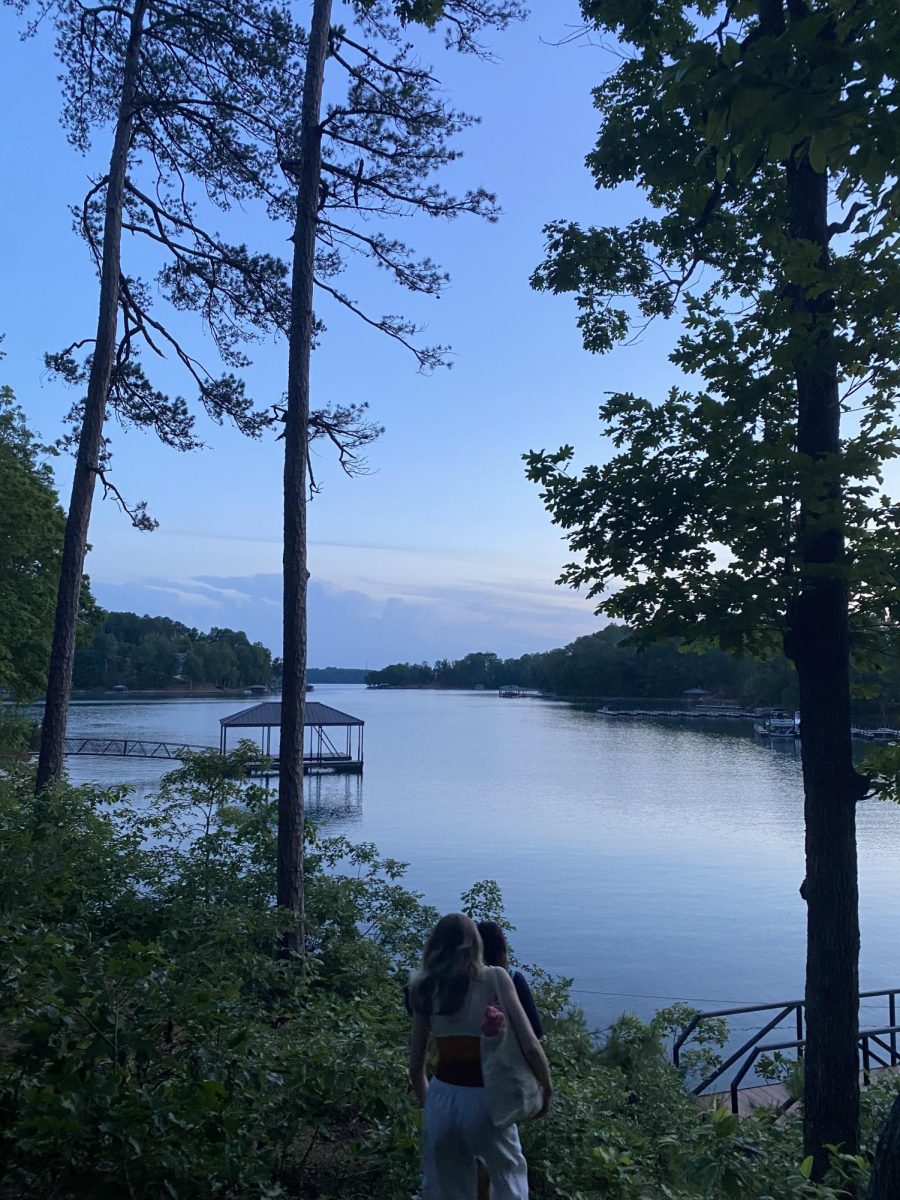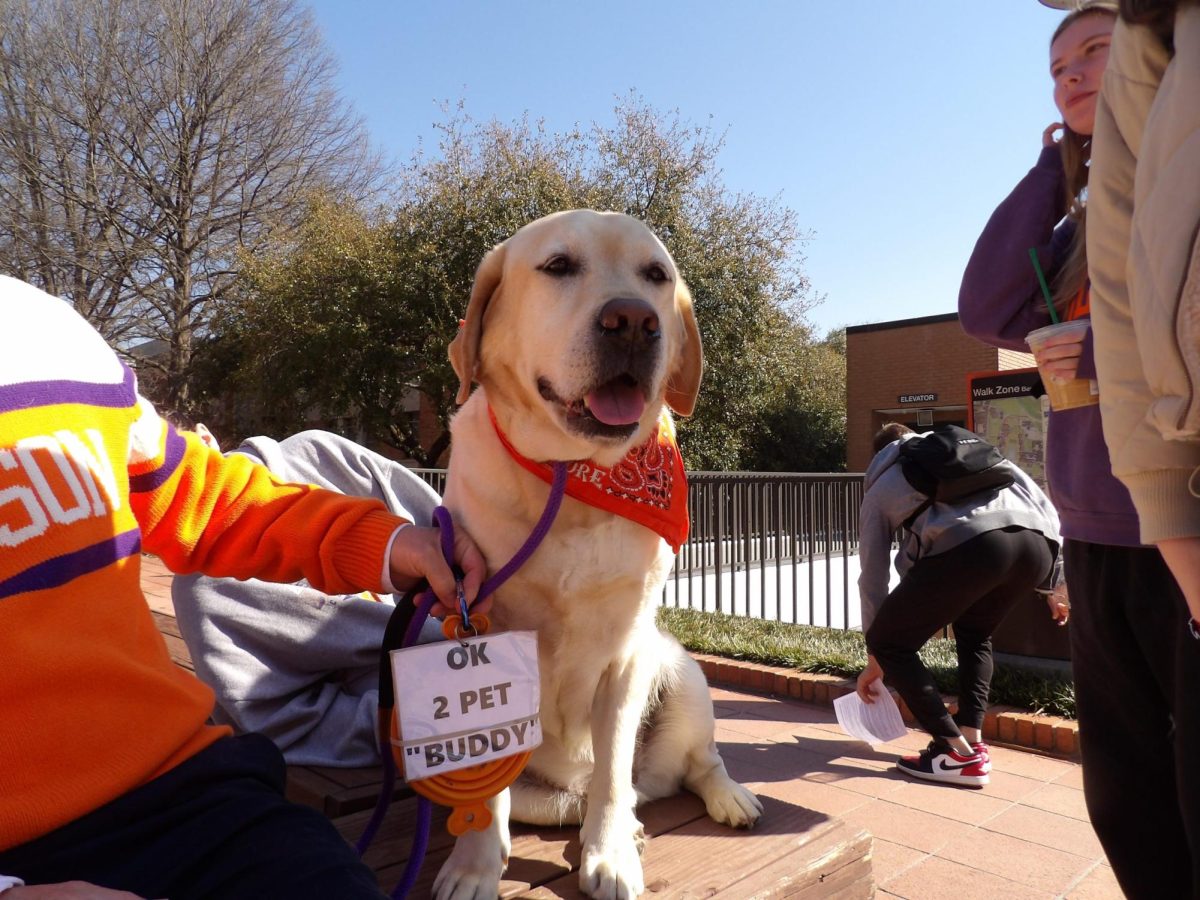The Tiger Staff (TTS): What made you decide to drive to Charlotte to protest?
Jaren Stewart (JS): I felt compelled. The environment I was raised in instilled in me compassion and acceptance, and to me that means acceptance isn’t selective; it extends to everyone. Sharing an article on Facebook or simply liking a post is well intended, but the type of legislative hate propagated by House Bill II was too big for me to be a bystander.
Carley Somers (CS): Honestly, I agreed to go before I even fully understood the bill. It was both a road trip and something I’d never done. Though in the days leading up to our trip as I researched and learned the bill had been passed, it seemed vital that we go and help start a revolution that could change the world.
Laurel Cartwright (LC): I felt that it is our responsibility to take some time to speak for those people who are being discriminated against.
TTS: Can you tell me a bit about your experience in the city? The people you interacted with?
JS: The people of Charlotte were a lot friendlier than I had anticipated. One man we interacted with was a middle-aged white male, who was smoking a cigar on his patio; he stopped us and asked about our signs. What astonished me was that he had no idea about the bill, and after our dialogue he went back to his day. It was impactful because it’s a conversation he may have again with someone — that’s how awareness spreads and movements begin.
CS: The interactions were all extremely unique, and I think that’s a really important note to make. When prompted, people spoke to great lengths about how they felt about House Bill II, and not a single person felt exactly the same. The people we spoke with taught us as much as I believe we taught them, if not more. But without proper guidance they would have likely gone about their daily lives without a care in the world.
LC: When we arrived at the city, we put together a few signs showing our protest against House Bill II and why we believe that it is wrong. For example, I created a sign that simply stated “No hate in any state.” While this did not necessarily pertain exactly to House Bill II, I wanted to make a statement to show just how discriminatory laws like this are. We walked around the city with our signs, and interacted with various people along the way. Some gave us a cheer, or nod of approval, while others stopped us to ask what exactly our signs were protesting. Many people did not even know what House Bill II was, and many who did still had no idea that it had actually been passed and made into a law.
TTS: Why is this cause so important to you?
JS: It is discrimination. As a person of good character, I would let myself and countless others down by not taking a stand.
CS: Not only is this a question of social injustice, but it’s a question on legislation. From what I understand of the bill, it was passed rapidly and without much deliberation. It’s come across to me as a question of whom is representing the people, that they would do something, presumably behind the backs of everyone else, and get away with it.
LC: For me personally, I think this cause is so important, as laws like this are a major step backward for our society. We need to continue to move towards equality, and laws like this support discrimination and bias against people of
our nation.
TTS: How would you describe the experience of protesting this bill? Was it positive or more negative?
JS: Positive. It was scary going to a new city, and it was challenging starting the conversations, but it was rewarding when we found people who stood with us and gave support. Growing up in San Diego, California, we have the upmost respect for the military, and for me personally because my father served in the Navy for 20 years. With that being said, the day really stood out as positive to me when we were passing a family and the father, who was an Army vet, gave me a high five and kept walking. His gesture reaffirmed my stance, and kept me upbeat for the rest of the day.
CS: I can’t say I’ve ever protested anything before, so it was a real learning experience. We had interactions with individuals experiencing homelessness and law enforcement, and everyone had their own opinion on the issue. It wasn’t violent or heated like it’s often broadcasted as, just a way to facilitate the conversations that will change people’s perspectives.
LC: I would definitely say it was a positive experience. For the most part, everyone we interacted with supported our position and agreed that this new bill is a prime example of legislative hate.
TTS: What can you tell Clemson about your protest? Is there anything you’d like this community to know about it?
JS: Speak. Speak. Speak. Don’t get so distracted by academia and your own life that you can’t spend time aiding those in need. The Civil Rights Movement didn’t stop because people had finals. You’re important and you matter, and so does every he, she and each identity in-between.
CS: For me, this reverts back to my comments on the people we spoke with in Charlotte. Don’t wait for something like a community dialogue to speak to the issues you feel strongly about. Be the prompter and facilitate the conversations.
LC: The most important thing there is to know about any protest is to just get out there and do it. Don’t wait for someone else to start one, or wait until you know there will be a large group to fit in with. While we understand that only three of us cannot make a difference in one day, we can create awareness that will eventually lead to change. One thing I learned was that this bill was not passed because it had so much support, but simply because people were not aware of it or did not speak up against it. I still believe that the majority of people in the state of North Carolina would not support such a hateful law, but too many people are afraid or just unwilling to speak up. Honestly, the most important thing that any of us can do to create a more accepting and equal society is to just speak up and stand up against discrimination.







